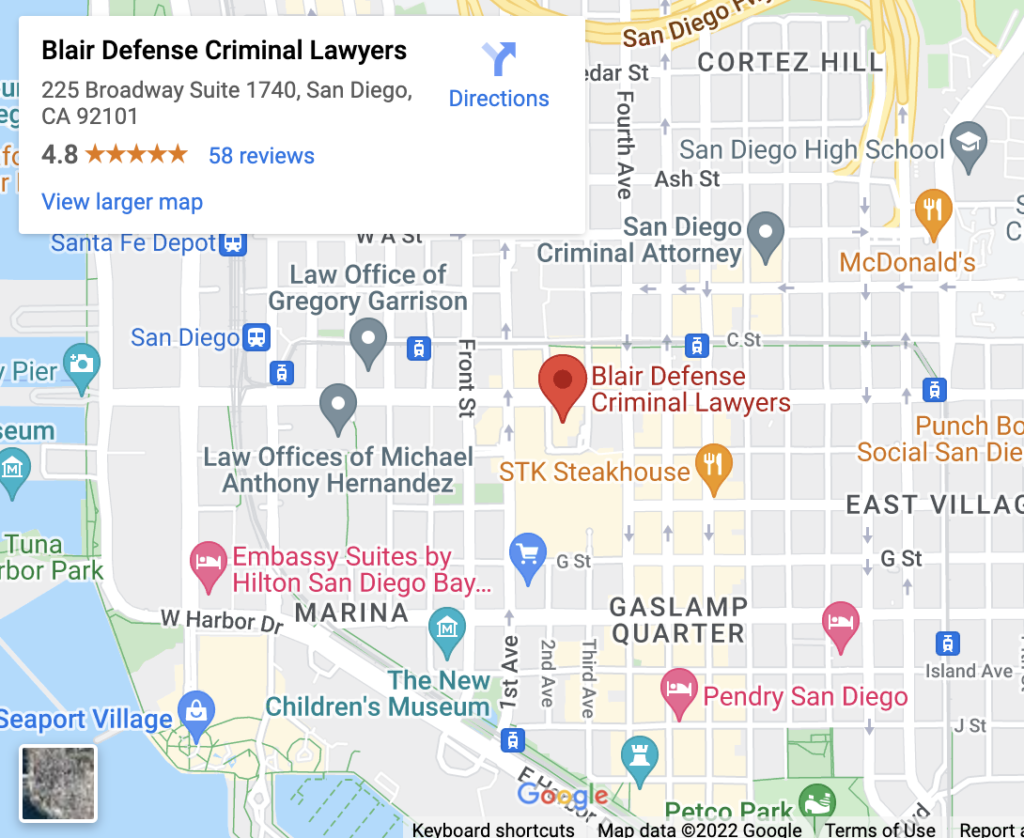
Due process refers to a set of legal protections enshrined in the U.S. Constitution that guarantee fairness in judicial and administrative proceedings. Specifically, due process requires government entities to respect all the legal rights owed to an individual according to the law and the Constitution.
There are two aspects of this critical legal principle: substantive due process and procedural due process.
Procedural Due Process

Procedural due process concerns the methods and steps the government must follow before it deprives someone of life, liberty, or property. This aspect emphasizes transparency, fairness, and an opportunity for the accused to be heard.
Examples of some of the most important aspects of procedural due process include:
Right to Counsel
A critical component of procedural due process is the right to legal representation. This means that if you cannot afford an attorney, one will be provided for you at no cost. Working with a competent criminal defense attorney can make all the difference in your case.
Right To Remain Silent
The right to remain silent is given by the Fifth Amendment of the U.S. Constitution, which protects you against self-incrimination during legal proceedings. It means you’re entitled to refrain from answering questions or providing information that could potentially incriminate you in a criminal case.
Notice and Hearing
Due process also entails the right to be given timely and detailed notice of any legal proceedings against you and the opportunity to be heard. This ensures that defendants have a fair chance to prepare their defense and challenge the charges they face.
Protection Against Double Jeopardy
The Fifth Amendment offers protection against double jeopardy, meaning that an individual cannot be prosecuted twice for the same offense. This safeguard ensures that the legal process is not used oppressively against a defendant.
Right to a Public Trial
The right to a public trial ensures that criminal trials are open to both the general public and members of the press.
The Presumption of Innocence
The presumption of innocence is a cornerstone of criminal justice that assumes the defendant is innocent until proven guilty. It makes it the prosecutor’s responsibility to prove your guilt beyond a reasonable doubt – it is not your job to prove your innocence.
Procedural due process is an essential part of the legal system meant to ensure fair treatment.
Substantive Due Process
Substantive due process is a principle that refers to the essential rights and liberties that are so fundamental to the system of government in the United States that they cannot be infringed upon or taken away by laws or governmental actions except in unique circumstances.
Examples of substantive due process include:
The Right to Privacy
The right to privacy is a fundamental human right recognized under U.S. law and derived from several amendments within the Bill of Rights. It protects individuals’ personal affairs and information from unwarranted governmental intrusion.
Freedom From Unreasonable Searches and Seizures
The Fourth Amendment of the U.S. Constitution expressly protects individuals from unreasonable searches and seizures by the government. This means that law enforcement officials must generally obtain a warrant supported by probable cause before conducting any search of your person, papers, home, or belongings – except in rare circumstances where a warrant is not required.
The Right To Raise One’s Children
The right to raise one’s children is deeply rooted in the privacy and liberty interests highlighted by the U.S. Constitution. Particularly, this right emanates from the Due Process Clause of the Fourteenth Amendment, which protects against unwarranted government interference in family decisions.
Freedom of Speech and Expression
While not absolute, freedom of speech ensures you can speak your mind, express ideas, debate policies, challenge government actions, and participate fully in a free society without fear of censorship or restraint by the government.
If you believe that your substantive due process rights are being infringed upon, seeking immediate legal advice is essential.
The Role of San Diego Criminal Defense Attorneys
Defense attorneys play a crucial role in ensuring due process for individuals accused of crimes. Through advocacy, knowledge of the law, and strategic planning, they diligently protect defendants’ rights at each stage — from pre-trial hearings through trial and even during sentencing or appeals if necessary.
If you’re concerned about your right being violated, it’s important to reach out to a defense attorney or civil rights attorney as soon as possible, depending on the type of violation. A legal professional can assist you understand these rights and ensure you are protected. Contact Blair Defense Criminal Lawyers today at (619) 357-4977 to schedule a free consultation with an experienced San Diego criminal defense lawyer.

